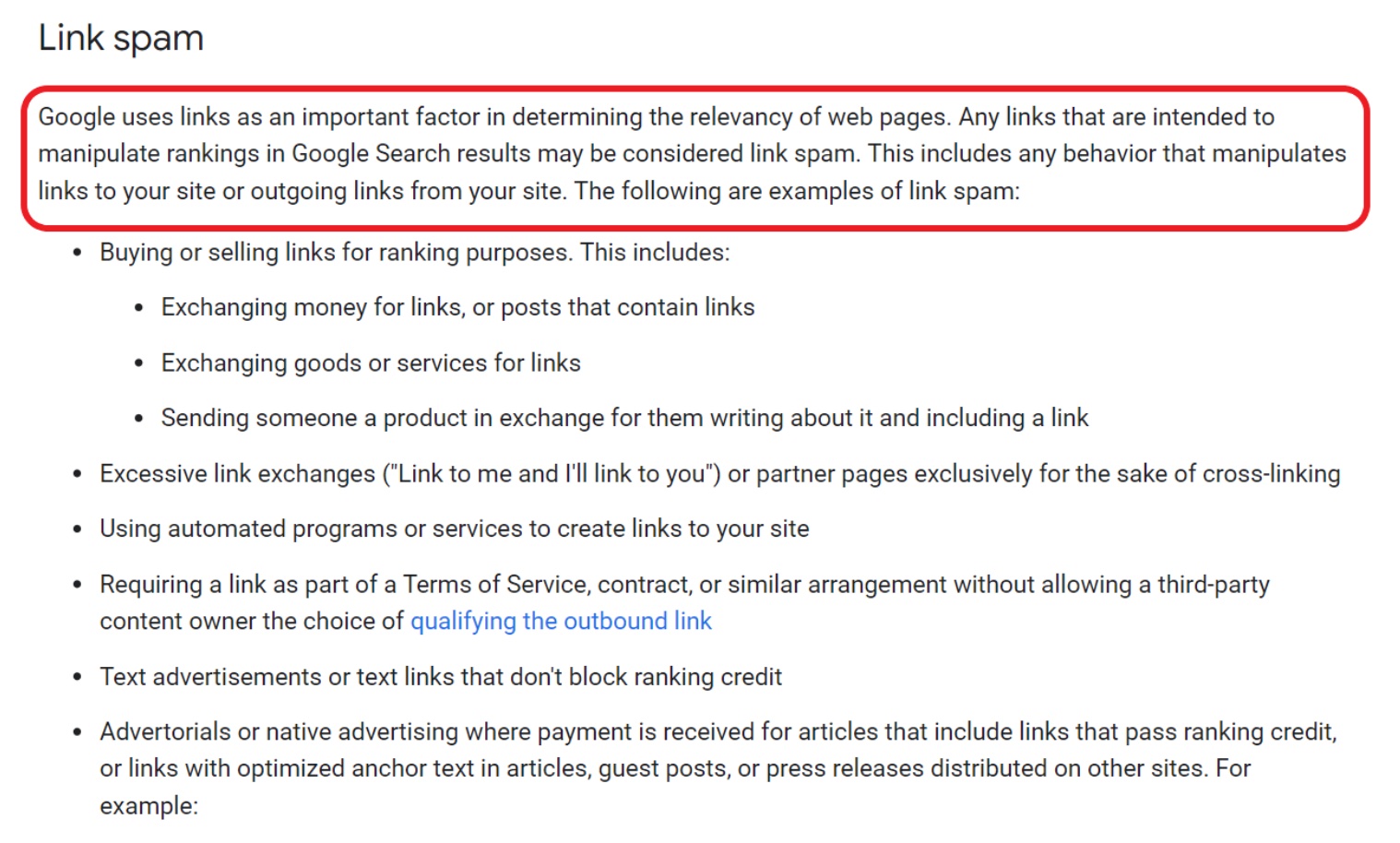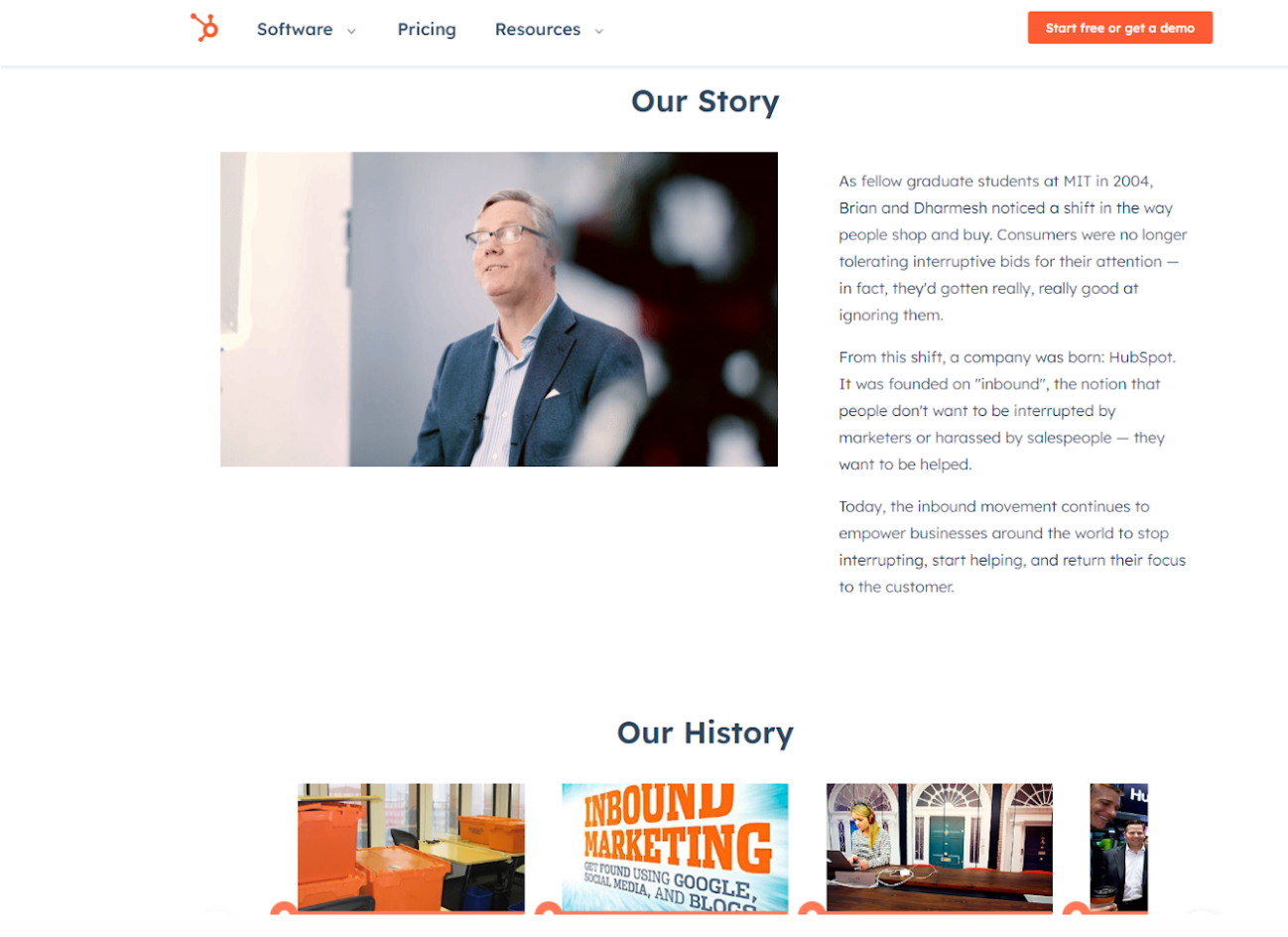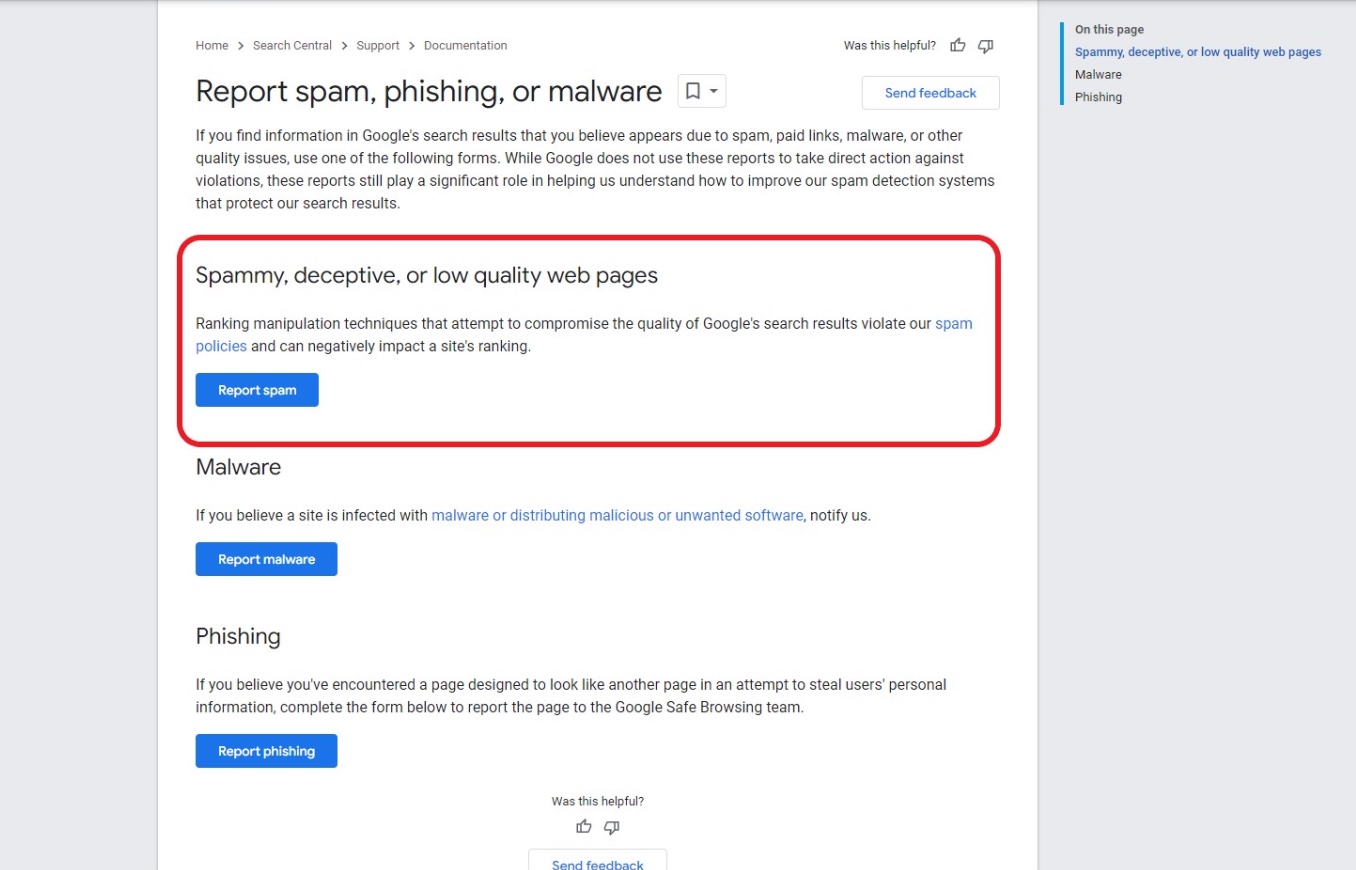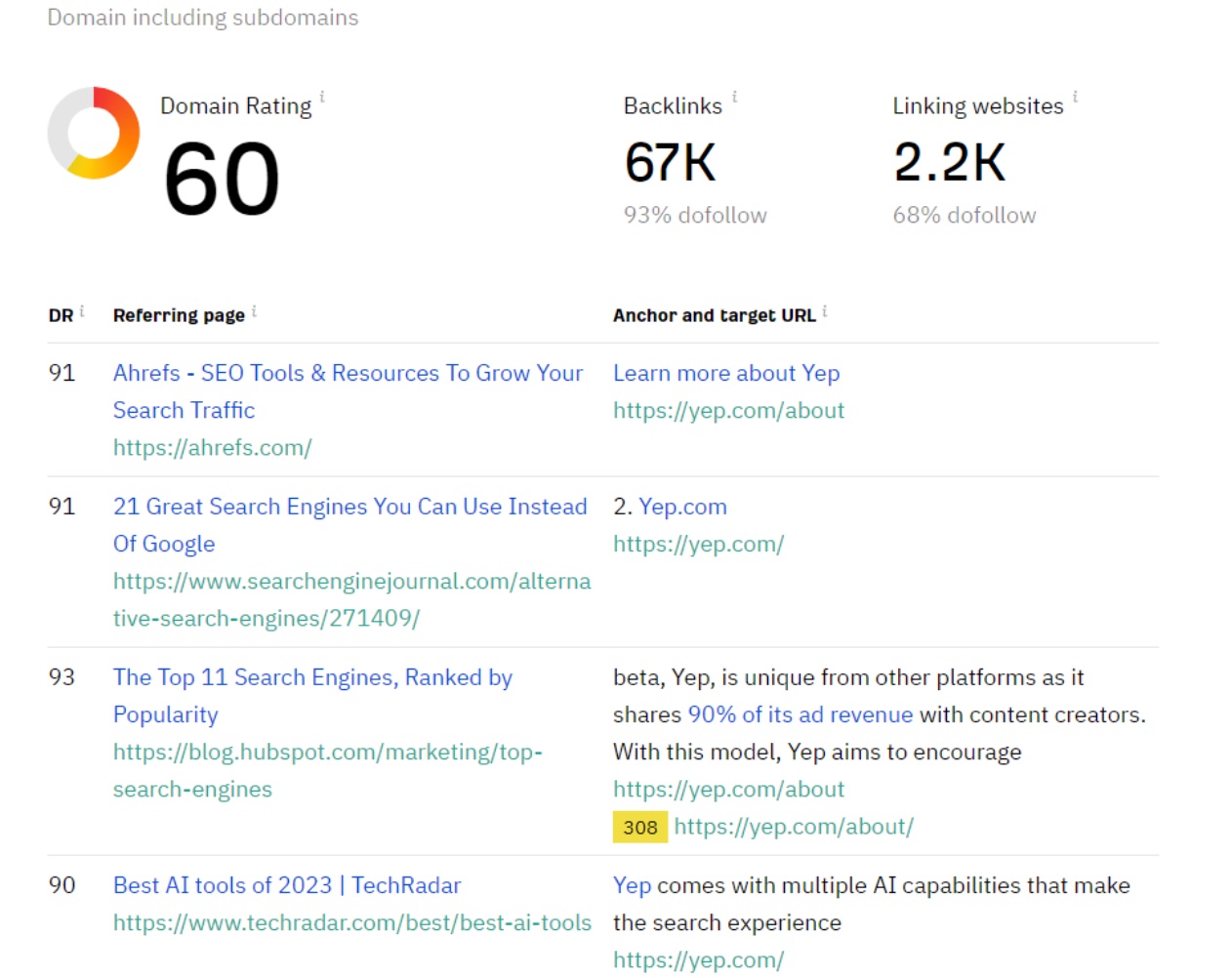Link farming is the practice of creating a group of websites that exchange links with each other. Link farming intends to increase the authority of member websites in niches where it’s otherwise difficult to gain inbound links naturally.
The concept is not new. SEOs first developed link farms in 1999 to exploit the Inktomi search engine which had a heavy dependence on link popularity to assign page rank.
Why should you care as a website owner and SEO professional? Well, it’s dangerous for your site to end up with a high distribution of links sourced from link exchange programs, either knowingly or unknowingly.
In this comprehensive guide, you’ll learn more about link farming, how it works, its consequences, and, most importantly, strategies that you can use to avoid falling victim to this damaging scheme. Let’s dive in:
The Consequences of Link Farming on SEO: Why is Google Opposed to Link Farming?
While link farming might seem like a shortcut to boost ranks and build a website’s authority, it comes with massive risks. Link farming breaks Google’s Webmaster Guidelines, which categorizes all links intended to impact PageRank or a site’s ranking in Google search results as link spam.

Source: Google’s link spam policy
Google’s ranking algorithm is constantly evolving and improving to detect link farms. Some of the factors that search engines consider when identifying the practice are the number, quality, relevance, and diversity of inbound links.
If Google detects multiple hyperlinked websites, it may apply a manual action or an algorithmic penalty to the site, which can result in lower rankings, removal from the index, or devaluation of the links:
- Reduced search engine rankings translate to fewer potential customers and less organic traffic;
- Removal from search engine indexes signifies that the site will not appear in any search results at all;
- Link devaluation results in the site losing the authority and trust it gained from those links.
Why does Google hate link farming? The search giant’s stance is based on its mission to organize the world’s information, making it universally accessible and useful. Link farms undermine this quest by creating artificial and irrelevant links to content and pages that may not provide useful information.
Link Farming vs Private Blog Networks (PBNs): Comparison
There’s a fine line between link farms and Private Blog Networks (PBNs) as they are quite similar. Link farms comprise a group of websites linking to each other. They tend to feature low-quality websites practicing reciprocal linking and paid linking to other target websites.
PBNs are more sophisticated as they comprise private—often discreet—websites that link back to a target site. The sites are more controlled and carefully selected, making them more qualitative than link farm sites. They may be managed directly by site owners or third parties. Instead of selling links, private blog network link placements are often directed to one or a few websites.
Both link farms and PBNs are often considered black hat SEO techniques as they violate search engine guidelines and eventually lead to sanctions upon detection.
The High Domain Authority and Domain Rating (DA/DR) Paradox of Link Farms
Domain Authority (DA) and Domain Rating (DR) are two of the most important metrics commonly used to determine a website’s authority on search engine rankings. They are calculated based on the number and quality of backlinks that point to a website from other sites.
Websites with higher DA/DR scores are more likely to rank well in search engine results and pass the most authority. So, when evaluating linking opportunities, SEOs heavily depend on these metrics to determine the domain’s quality and potential selection.
Take note that link farms have found a way to get around these two metrics by similarly having a large number of incoming links. But despite their high DA/DR scores, they are still in violation of search engine guidelines and risk being penalized or banned.
While a high DA/DR score may seem attractive, you need to go beyond just DA/DR when assessing websites for authority and credibility. There is a need to use more holistic measures to root out black hat SEO activities.
Spotting Link Farms: A 5-Step Detection Guide
Identifying link farms has never been easy. The job is akin to detective work in the realm of SEO. Fortunately, we have compiled a comprehensive guide that will help you spot link farms with ease:
Assessing the Overall Quality of a Website
Link farms are mostly concerned with providing outbound links to other websites, and will try to keep up appearances while not truly matching the quality of a genuine site. For instance, while they may have normal-looking service pages, if you take a deeper dive, you’ll notice incomplete blogs, missing support numbers, or spelling mistakes in the content.
The website’s visual appearance can offer more clues as link farms will often prioritize quantity over quality with outdated designs and cluttered pages. They may have a lot of intrusive ads like pop-ups that make them even more hectic to use. You may find several broken pages even from the top navigation menu, and there could be readability and mobile compatibility issues.
Searching for the “Author” and “About” Information
Legitimate websites are often transparent about what they do and why they exist. If you visit their “About Us” section, you will find valuable information about the company’s team members, story, and history.

In addition, on authentic websites’ blogs, you can usually find comprehensive information about people that contribute to the blog. Creators of link farms on the other hand often overlook pages like the “About us” page.

Examining the Number of Linked Websites
Examining how relevant the outbound links are can help reveal if you’re dealing with a backlink farm. Normal websites place links to other relevant sources to help further a user’s understanding of a topic.
However, link farms will link to a high number of unrelated websites, across several industries and niches that are poor sources of information. For instance, if you’re examining an SEO blog, check how many links are pointing to unrelated niches like healthcare blogs, wellness blogs, or affiliate websites.
Linked websites similarly need to have some correlation to inbound links. For instance, if an SEO blog links out to other related sites, they should similarly receive links from SEO-related blogs as they are in the same industry. Checking for these correlations and how many other websites are linking to the site can help determine if you’re dealing with a link farm that no one in the industry has ever heard of.
Inspecting the Anchor Texts
Anchor texts are clickable texts in a hyperlink. They play a huge role in SEO as they can be used to increase the relevancy of a regular web page to a particular search term. That’s because search engines look at the anchor text and its surrounding content to determine what the linked-to page may be about.
Links farms often use generic, irrelevant, and keyword-stuffed anchor texts, while legitimate websites have a more natural link profile. Using SEO tools you can get an anchor text report that will reveal the anchor text used in backlinks pointing to the site.
Checking other SEO Metrics
Metrics like Domain Authority (DA) have long been crucial to determining a site’s authority. But you must pay particular attention here, as link farms have found a way to artificially elevate their Domain Authority, making it difficult to realize their unethical activities.
Here is how they do it: they build a ton of backlinks by leveraging PBNs. That’s why it’s possible to find a link farm with a high DA but with irrelevant content, poor design, no first pages, and little organic traffic.
You need to look at other metrics that reveal the website’s quality including:
- Content quality and niche relevance of the website
- The reputation of the website’s owner or publisher
- Transparency, timeliness, and accuracy of the information provided
- User feedback and reviews
- Security, cookies, and privacy policies of the website
- Engagement rates, organic traffic
- Diversity of backlink profile
- User experience & intent: Is the website meeting its purpose?
These factors can help you go beyond surface metrics and determine if the site is utilizing black hat SEO techniques to inflate its prominence and search rankings.
Ensuring Your Link Building Does not Use Link Farms
There is no denying that link building has a significant impact on a website’s SEO progress. A little sign of link farming on your website can ruin your reputation and search engine ranking. That is why you need to consider your link choices carefully by vetting link building services with extra caution.
What should you watch out for? If you notice an unusual spike of inbound links within a short time, that should alert you early enough. You already know that link farms thrive on quantity over quality.
Any service that guarantees a huge number of links within a short time should worry you as well. There is every chance that they are engaging in unethical search engine optimization practices.
Keep an eye on link building services that sell links at low prices. That’s because building links the right way is a tedious job that involves a lot of effort, expertise, and strategy. It comes at a cost, so don’t expect these services to be offered at a bargain rate.
Transparency is also key when scouting for link building services. Any link building service should be clear about all their methods and insights into how they intend to keep your link quality a top priority.
Weighing the Risks: Is Link Farming Worth It?
Link farming may offer short-term benefits, for instance, a boost in your DA score from having more backlinks. But in the long run, it poses far-reaching consequences.
One of the biggest consequences is going to be a loss of integrity. This may result from your black hat link building practices being brought to light. Another consequence is sanctions from search engines that will reduce your rankings. In some cases, popular search engines can even decide to de-index your website from search results, bringing a dead end to your website.
Note that your competitors may be tracking your link profile to determine if you’re participating in link schemes. They may as well report you to Google and other search engines if they encounter signs of any paid links.

Google’s reporting feature for spammy, deceptive, and low-quality websites
One of the most high-profile examples was in 2011 when Google Penalized JCPenny.com, one of the biggest retailers in the world. The website had a high distribution of keyword-stuffed backlinks pointing to their product pages from smaller and often unrelated sites, ranging from directories to dentistry websites. The data about the irregular linking building scheme had been gathered by the New York Times.
Now, is link farming worth it? Well, illegitimate practices underscore the principle that ethical, sustainable search engine optimization strategies are the only path to long-term success. Link farms, on the other hand, are a risky gamble and often end in disastrous consequences.
Ethical Alternatives to Link Farming
If you want to boost your SEO without compromising integrity, there are a few ethical alternatives that you can employ on your website:
- Create high-quality content: Focus on creating highly informative content that provides insights and solutions to the reader’s problems. As always, quality content keeps earning organic links and traffic;
- Guest posting on high-quality sites: Guest posting involves contributing content to respected platforms. The goal is to expose your brand to a wider audience. Guest posting will cultivate an organic and authentic relationship within your industry.
- Building relationships with influencers and other relevant websites: Engaging with thought leaders and peers will foster a network of connections that may lead to potential referrals for your products and services. You can collaborate, share insights, and support each other within your industry.
These strategies will not bring overnight success. It’s going to take time and effort, and you’re going to want to give up countless times. Even so, don’t fall back on risky link building. It’s best to hire the right agency to help you through.
Remedies for Unnatural Links from Link Farms
You need a strategic approach to remedy unnatural links that can potentially damage your website’s reputation:
Step 1: Execute a Meticulous Link Audit
You should begin by identifying spammy and low-quality sites pointing to your website. To get this right, you can use link auditing tools that provide domain score metrics.
Watch for linking domains with poor site metrics like DA scores of less than 20. But be sure to thoroughly scrutinize the relevance and origin of each link by visiting the websites individually. It’s the surest way to determine which links are from link farms and other suspicious sources and avoid falling for the SEO metrics trick.
Step 2: Disavow Unnatural Links
Submit all the links that you have identified on the Google Disavow Link tool. The list should comprise all links that you deem harmful to your site’s credibility. Disavowing the links informs Google’s PageRank algorithm to disregard these links whenever they crawl your website and distribute link equity.
Step 3: Prevent and Discover
They say prevention is better than cure. Going forward, you should perform regular link audits to spot spammy backlinks before they saturate your link profile and make it toxic.
Common Questions about Link Farming
Is link farming legal?
As far as search engines go, link farms go against Google’s guidelines. But there is no legal legislation that prohibits them.
What is a link farm?
It’s a group of websites that exist to link to each other to generate authority. Just as in the real world, farms range in size from small groups to networks with thousands of sites created through automated programs.
How can I identify link farms?
You can tell if a website is a link SEO farm by determining if it solely exists to provide links to other sites in the same group. It requires checking a multitude of factors including if it has a higher ratio of outbound links vs. inbound links, poorly written content & design, over-optimized anchor text, poor DA/DR scores, no real search engine rankings, and little web traffic.
Why are link farms bad for SEO?
Operating link farms is a harmful practice as far as SEO goes because they try to manipulate search engine rankings by pretending to offer valuable content to users. Link farms are sources of paid links that do not reflect the quality or relevance of the web pages they link to.
Search engines can detect link farms and penalize the pages that use them, lowering their rankings and visibility. Recovering from penalties imposed by search engines can take from six months to two years, depending on the severity of the case.
How do I avoid link farms?
You need to carefully inspect any website before engaging with them for linking opportunities. Remember people who build link farms don’t owe their clients anything. They may end up overcrowding your link placements with other paid links, and there is nothing or no one to hold them to account.
What if my site is affected by link farming?
Quickly disavow all harmful links. Use Google’s Disavow Links tool for this purpose. Also, execute regular audits to kick out low-quality links and patiently rebuild your online presence once again.
Conclusion: Emphasizing Ethical SEO and the Perils of Link Farming
Unethical SEO practices can have far-reaching ramifications on your website’s integrity and reputation, which include de-indexing your website on search engine rankings and losing the trust of your users.
Instead, examine your link choices and focus on growing your link profile as naturally as possible. While at it, don’t fall for services that promise to undertake ethical link building only to use blackhat techniques as they are faster and cheaper.
Natural links will go a long way as they position your site as a good source of information. What’s more, you won’t have to worry about your site losing all its hard-earned gains once Google’s ranking algorithm discovers and pulls the rug on link farms.







